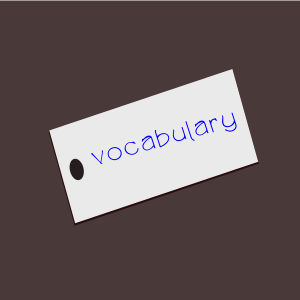
I’ve posted before about how learning word families can increase your vocabulary, and one of the easiest ways to learn word families is to look at suffixes, or word endings.
The word endings give you an idea about the type of word you are looking at. Here are some examples for some of the most common suffixes:
-
-er
-
-ful
-
-ide
-
-ive
-
-ly
-
-ness
-
-or
-
-tion
A noun for a person that performs an action. Examples: footballer, teacher. Exceptions: freezer, computer (although computer used to mean a person who solved mathematical problems).
An adjective, can be based upon a verb or noun. Examples: colourful, forgetful, powerful.
A verb. Examples: decide, divde, ride. Exceptions: tide (which can be a verb but is usually used only as a phrasal verb tide over)
An adjective, often based on an action. Examples: creative, imaginative. Exceptions: hive, native.
An adverb. Examples: quickly, readily. Exception: bully.
The noun based on an adjective. Examples: happiness, forgetfulness. Exception: harness.
A noun for a thing that performs an action. Examples: calculator, sensor. Exception: professor.
Usually noun for an action. Examples: creation, education. Exceptions: nation, station.
